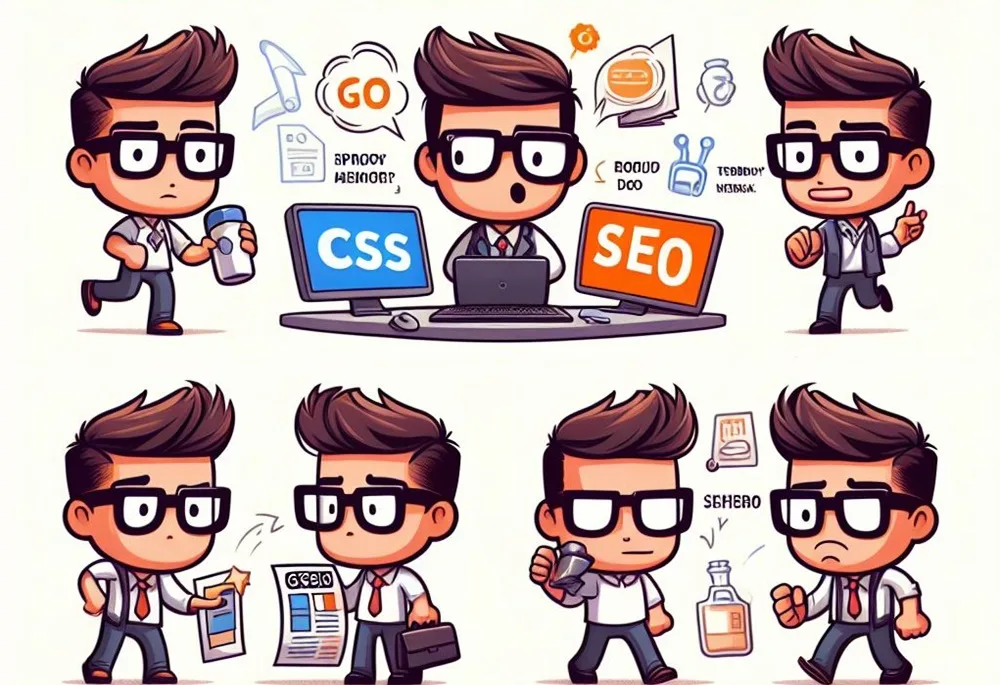50 SEO Interview Questions

SEO interview questions can help employers assess potential candidates for a range of roles from SEO specialist to content strategist.
From technical questions about optimization techniques to strategic queries about how to target specific audiences, these questions offer insight into a candidate’s knowledge and experience.
In this article, we’ll cover some of the most common SEO interview questions, as well as tips and advice to help you prepare for an upcoming interview.
Table of Contents
What Are SEO Interview Questions?
SEO interview questions are designed to help employers, such as digital marketing agencies and in-house SEO teams evaluate a candidate’s knowledge of search engine optimization (SEO) principles and techniques.
During an interview, employers will typically ask a range of questions related to SEO in order to gain an understanding of the candidate’s experience and capabilities.
11 Technical SEO Interview Questions and Answers

Question
What is the difference between 301 to 302 redirects?
Answer
A 301 redirect is a permanent redirect from one URL to another, informing search engines that the original URL has been moved or replaced.
A 302 redirect, on the other hand, is a temporary redirect and does not alert search engines that the page has been moved.
Question
What is the difference between 404 and 410 status codes?
Answer
A 404 error is an HTTP status code that indicates a page or resource could not be found. A 410 error, on the other hand, is an HTTP status code that indicates a page or resource has been permanently removed and should no longer be indexed by search engines.
Question
What is the best way to prevent a URL from being indexed?
Answer
The best way to prevent a URL from being indexed is by using a robots.txt file to block crawling, as well as adding a noindex meta tag to the page. Additionally, using the “Removals” section in the Search Console can help prevent URLs from being indexed.
Question
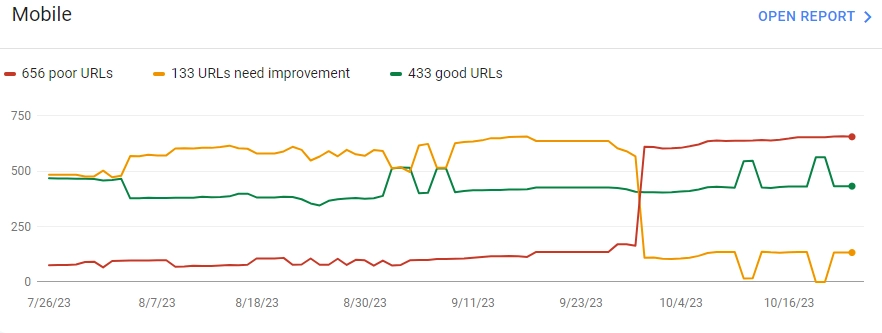
What Core Web Vitals are?
Answer
Core Web Vitals are a set of performance metrics related to the user experience on websites. These metrics measure aspects such as loading speeds, interactivity, and visual stability.
Question
Which code languages are used in SEO?
Answer
HTML, CSS, and JavaScript are the main code languages used in SEO. HTML is used to structure content, CSS for designing and styling, and JavaScript for adding interactivity and dynamic elements.
Question
What is the difference between noindex and nofollow tags?
Answer
A noindex tag is an HTML meta tag that tells search engine crawlers not to index a page, while a nofollow tag is an HTML tag that tells search engine crawlers not to follow any links on a page.
Question
What is your process for a technical SEO audit?
Answer
My process of a technical SEO audit typically involves the following steps:
1. Analyzing website architecture and crawling to identify any potential issues.
2. Checking for any broken links or redirects using a tool like Screaming Frog.
3. Identifying any duplicate content issues.
4. Analyzing page speed and optimizing for Core Web Vitals.
5. Checking the website on mobile devices to identify any potential issues.
6. Auditing the website’s backlink profile and identifying any unnatural links.
7. Analyzing keyword density to identify any potential issues.
8. Conducting a content gap analysis to identify opportunities for improvement.
9. Setting up tracking in Google Analytics to properly monitor website performance.
10. Running a site-wide audit via a tool like SEMrush or Ahrefs to identify any potential issues.
Question
What are Orphan Pages and how do you handle them?
Answer
Orphan pages are pages that cannot be reached from the website’s main navigation or other internal links and are considered a common SEO issue.
To handle orphan pages, I typically use a tool like Screaming Frog to identify any orphan pages, then add a link to these pages (if they have any value) redirect them to relevant pages, or delete them entirely.
Question
What is cross-domain canonicalization and how would you implement it?
Answer
Cross-domain canonicalization is a technique used to inform search engines which version of a page should be indexed. It is often used when multiple versions of a page exist on different domains.
Question
What is a better URL structure for a blog: example/blog OR blog.example?
Answer
The better URL structure for a blog depends on the context of the site, but basically, the option of a subdirectory (example/blog) is almost always the best.
Question
What does the directive “disallow” mean?
Answer
The directive “disallow” is used in a robots.txt file to tell search engine crawlers which parts of the website should not be indexed.
Want More Traffic?
6 Basic SEO Interview Questions and Answers
These questions are mostly for beginners who are trying to gain their first experience as SEO specialists in an SEO agency.
Question
What is the purpose of SEO?
Answer
The purpose of SEO is to improve a website’s visibility in search engine results pages (SERPs) for relevant keywords.
SEO involves optimizing a website’s content, structure, and links to improve its ranking in organic search results.
Question
What is the most popular search engine?
Answer
Google is the most popular search engine, accounting for over 90% of all search traffic worldwide.
Question
What are the three sections of SEO?
Answer
The three main sections of SEO are on-page SEO, off-page SEO, and technical SEO.
Question
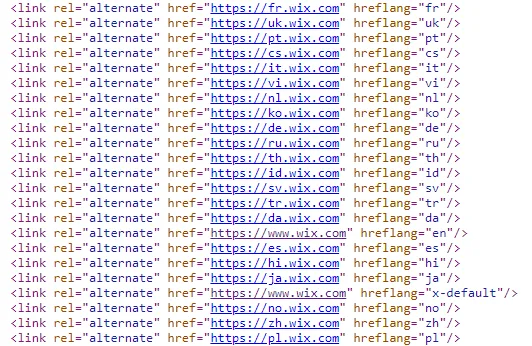
What is a Hreflang tag?
Answer
Hreflang tags are HTML attributes that indicate the language and region of a page to search engines.
Hreflang tags ensure that the correct version of a website is served to users in specific language and region combinations.
Question
What are Backlinks?
Answer
Backlinks are links from one website to another. They can provide a significant boost to the ranking of the linked page, as search engines view backlinks as a sign of trust and authority.
Question
What is duplicate content?
Answer
Duplicate content is any content that appears in more than one location on the web.
Search engines may penalize sites with duplicate content as it can negatively affect the user experience, resulting in lower rankings.
8 Experienced SEO Interview Questions and Answers
Question
What is Semantic SEO?
Answer
Semantic SEO is the practice of optimizing a website’s content to improve its relevance and context for search engines.
It involves understanding user intent and creating high-quality, semantically related content, keywords, and long tails to attract and engage target audiences and make the content more relevant to a specific topic.
Question
How do you perform a keyword research?
Answer
When performing keyword research, I typically start by creating a list of relevant topics related to the website.
I then use a keyword research tool like SEMrush or Ahrefs to identify potential keywords, paying attention to search volume, competition level, and keyword difficulty.
I then create a list of targeted keywords based on my findings and prioritize them based on their importance.
Question
What Is the difference between white hat SEO and black hat SEO?
Answer
White hat SEO refers to techniques that adhere to search engine guidelines and are considered to be ethical.
Examples include optimizing content for target keywords, building backlinks from quality sources, creating an easy-to-navigate website structure, and more.
Black hat SEO is the opposite and refers to techniques that are considered unethical or go against search engine guidelines.
Examples of black hat SEO techniques include keyword stuffing, cloaking, link farms, and more.
Question
![]()
How do you track SEO performance?
Answer
I track SEO performance by setting up tracking in Google Analytics and using a range of SEO tools like SEMrush or Ahrefs.
I’ll also track rankings for target keywords, analyze website traffic, and monitor any changes in organic search visibility to track performance.
Question
What do you do if you see your rankings drop?
Answer
If I see a drop in rankings, the first thing I do is analyze my website to identify any potential issues (crawling issues, the site got hacked, a penalty or so) and determine the cause of the drop.
Then, I take action to fix any issues and improve my website’s performance.
This could include improving website speed, optimizing content for target keywords, and updating the internal linking structure.
Question
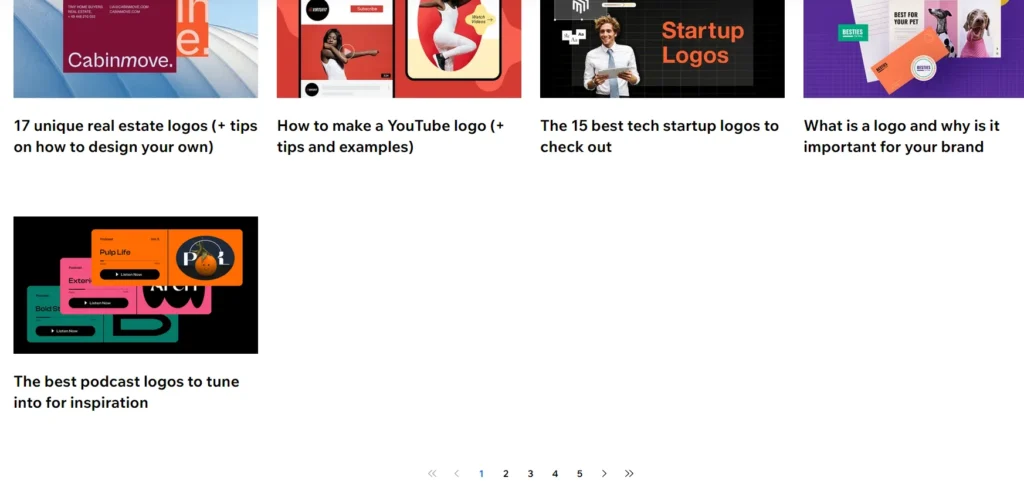
What is the best practice for pagination?
Answer
The best practice for pagination is to add the rel=”prev” and rel=”next” tags between each page, as well as a canonical URL pointing back to the original page.
Use preload, preconnect, or prefetch to improve page load time and ensure that search engines can easily crawl and index all pages.
This ensures that search engines understand and index your content properly and provide an optimal user experience.
Question
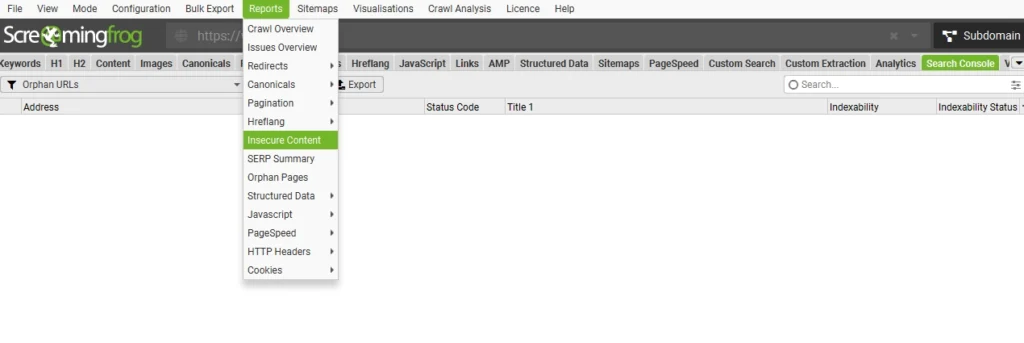
What is insecure content?
Answer
Insecure content is any content on a website that is served over an insecure HTTP connection.
This includes images, scripts, audio files, and any other content that is served over HTTP.
Question
How to use regex for SEO?
Answer
Regex (Regular Expressions) can be used to find and replace text across a website and within page content.
This is useful for SEO purposes when it comes to optimizing content for target keywords, fixing broken links, and improving the overall structure of a website.
7 Off-Page SEO Interview Questions and Answers
Question
What is link juice?
Answer
Link juice is the value that passes from one web page to another through a link.
It is essentially “voting power” that is passed from the linked-to page to the linking page, and it is a major factor in determining how well pages rank on search engines.
Question
What is link velocity
Answer
Link velocity is the rate at which links are acquired and lost over a given period.
It is an important factor to consider when building backlinks, as search engines take link velocity into account when determining rankings.
Question
What is page rank?
Answer
PageRank is a metric developed by Google to measure the importance of web pages. It works on a scale of 0-10, with 10 being the most important.
Question
What is CheiRank?
Answer
CheiRank is a sophisticated algorithm that determines the relative importance of URLs within a given link graph. Weighing external links provides an accurate measure of each URL’s significance.
Question
What are anchor text best practices?
Answer
Anchor text best practices include using a variety of different anchor texts (e.g., branded, generic, keyword-rich) in natural language, keeping the link-to-anchor text ratio low, avoiding over-optimized anchor texts, and using descriptive anchor text to provide more information to the user.
Question
Are link buying allowed?
Answer
No, link buying is not allowed and it can be penalized by search engines.
Question
When should you use “rel=sponsored”
Answer
The rel=sponsored attribute should be used when you are linking to a page that is sponsored by an advertiser, or when the link was exchanged for money or services.
7 E-commerce SEO Interview Questions and Answers
Question
What is Structured Data?
Answer
Structured data is a type of code that helps search engines better understand the content on a page.
It is marked up using accepted formats like Schema.org, allowing search engines to easily identify and interpret the information on a page.
Question
Should you add text to category pages?
Answer
Yes, adding descriptive text to category pages is beneficial for both search engine optimization and user experience.
Question

What is breadcrumb navigation?
Answer
Breadcrumb navigation is a type of website structure that allows a user to easily understand their location within the site.
It is typically represented as a path of links, starting with the homepage and leading to the current page.
Question
What is keyword cannibalization?
Answer
Keyword cannibalization is when multiple pages on the same website target the same keyword or phrase.
This can lead to confusion among search engines and is generally considered bad practice.
Question
What should you do with an out-of-stock product page?
Answer
Out-of-stock product pages should be redirected to an appropriate page, such as a category page or a similar product page.
Question
How can you optimize a product page?
Answer
Product pages should be optimized with keyword-rich titles and descriptions, unique content, and relevant images or videos.
They should also have clear calls to action, use Schema markup where applicable, and be easily navigable from the category page.
Question
What are the benefits of user-generated reviews?
Answer
User-generated reviews can be beneficial for SEO, as they provide fresh content and can increase click-through rates.
They also provide valuable feedback that can help inform product development and marketing decisions.
10 SEO Interview Questions for 5 Years of Experience
Question
What is Holistic SEO?
Answer
Holistic SEO is a comprehensive approach to search engine optimization that takes into account all aspects of a website, including technical elements, content, user experience, and off-site factors.
It aims to create a well-rounded and user-friendly website that will rank well in search engines.
Question
What techniques can you use to improve the crawlability of a website?
Answer
Several techniques can be used to improve the crawlability of a website, such as creating an XML sitemap, using robots.txt to block certain pages and directories from being crawled, removing unnecessary pages with no traffic and clear intent, and linking to internal pages from high-authority external websites.
Question
What is SSR?
Answer

Server-side rendering (SSR) is a technique used to render pages on the server, rather than in the browser.
SSR can improve page load times and provide better performance for certain types of websites like those built with JavaScript.
By using this method, search engines can better crawl and index the content of a page.
Question
What is Cloaking in SEO?
Answer
Cloaking in SEO is a technique where different content is served to users than what is presented to search engine crawlers.
This can be done by using different URLs for the same content, or by serving cloaked content only to crawlers.
Question
What is a single-page application?
Answer
A single-page application (SPA) site is a type of website that uses JavaScript to render content dynamically.
These sites are typically faster and smoother to navigate but can be more difficult for search engines to crawl.
Question
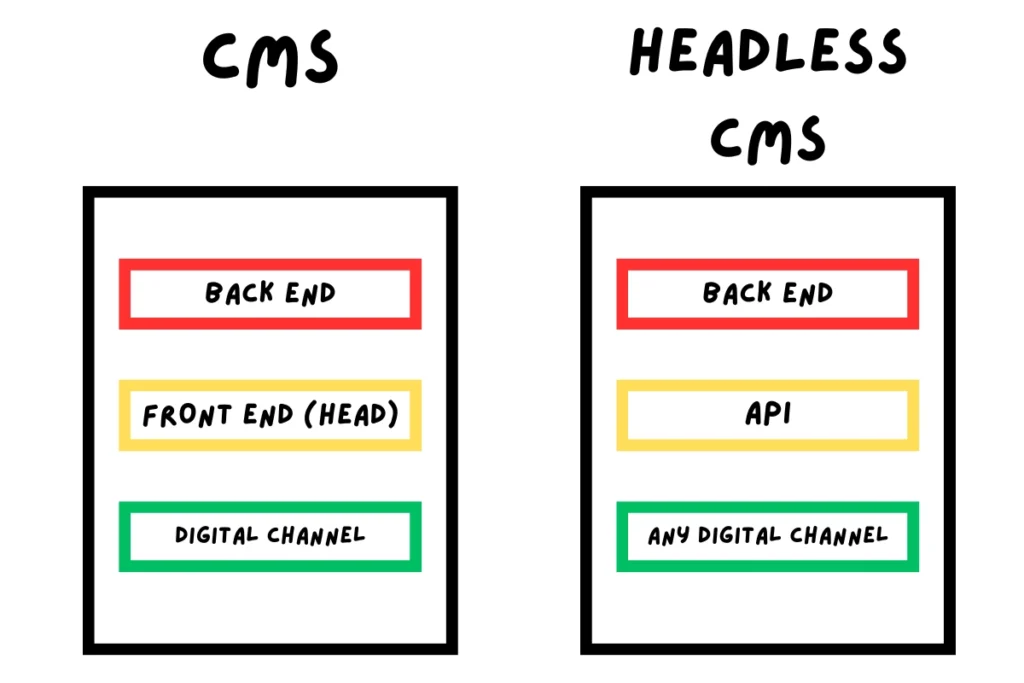
What is Headless CMS SEO?
Answer
Headless CMS SEO refers to optimizing the content and structure of a headless CMS (Content Management System) for better visibility in search engine results.
This includes techniques such as creating relevant metadata, investing in content modeling, friendly URLs, and implementing structured data.
Since headless CMS separates the back end from the front end, it allows for more flexibility in designing and optimizing websites for SEO purposes.
Question
How to appear on Google Discover?
Answer
Google Discover is a feature that surfaces content from around the web based on a user’s interests.
To appear in Google Discover, content should be optimized for search engines, have high-quality visuals, and be engaging to users.
Question
Give 5 “Google News” tips
Answer
1. Make sure your website is indexed in Google News by submitting an application and meeting the standards set by Google.
2. Use structured data and rich snippets to make your content stand out in search results.
3. Include keywords relevant to your topic in the headline of your article.
4. Publish timely, original content to increase the chances of appearing in Google News.
5. Optimize headlines for SEO to ensure your content is visible in search results.
Question
How to appear on zero results?
Answer
To appear in zero results, or featured snippets, content should be written clearly and concisely that answers the query as directly and accurately as possible.
Content should also be with bullets or numbered lists to make it easier for readers and search engines to skim and find the information they are looking for.
Question
What is Google’s Mobile-first Indexing?
Answer
Google’s Mobile-First Indexing is a way of indexing websites for search engine results.
It is based on the idea that the mobile version of a website should be indexed first, rather than the desktop version based on the fact that more people are now accessing the web from their mobile devices.
This means that sites should be optimized for a mobile-first experience to ensure they rank well.
Question
How to handle URL parameters?
Answer
URL parameters are query strings that are added to the end of a URL and can contain additional information about the page being accessed.
To handle URL parameters, it is important to set crawlers’ expectations by using the robots.txt file and adding canonical tags to signal which page should be indexed.
Additionally, it is important to make sure that dynamic parameters are not indexed by search engines.
Conclusion
SEO interview questions are important to be familiar with either if you are a recruiter looking to hire an SEO specialist or if you are the one that is applying for such a position.
Knowing the meaning of terms like SSR, Cloaking, single-page application, etc. will give you a better understanding of the search engine optimization process as well as a higher chance of securing a job.

Moshe Ben Haim
Moshe Ben Haim is an SEO expert and the founder and CEO of B.H Digital.
With over 7 years of experience in the field, Moshe has helped countless clients increase their visibility and reach potential customers online.
Before founding B.H Digital, Moshe worked as an SEO specialist at top-notch companies like Wix, 888 Holdings and Verbit.


